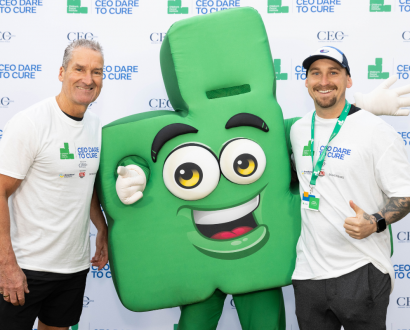It’s a warm night in the heart of Alexandria in Sydney, and the OzHarvest CEO CookOff is only one month away. In the busy kitchen at OzHarvest HQ, a practice run for the event is in full swing, and members of the media have been invited to join the fun. Pots clank and plates are shuffled between benches; the smell of freshly cut herbs and sizzling butter wafts through the air, and the soft prattle of the pasta maker sees long strips of fresh fettuccine ready for the boil.
The essence of the space, however, is the people within it — a veritable melting pot of gourmet chefs, high-level business executives and media personalities, swapping stories and laughing at their varying culinary abilities as they stand side by side grating parmesan or stirring the bubbling sauce.
Decked out in OzHarvest yellows, founder and CEO Ronni Kahn cooks alongside us in her bright-yellow apron, a chunky yellow necklace, her sunny attitude infectious as she wanders around the kitchens, poking fun at the chefs.
The evening produces large bowls of steaming pasta, seasoned meats, and strawberry meringue, ready to be packaged, loaded into the OzHarvest vans, and sent off into the night to be delivered to Sydney’s most vulnerable either through charitable agencies or direct to their door. As we eagerly await a taste of the finished product, Ronni expresses her gratitude.
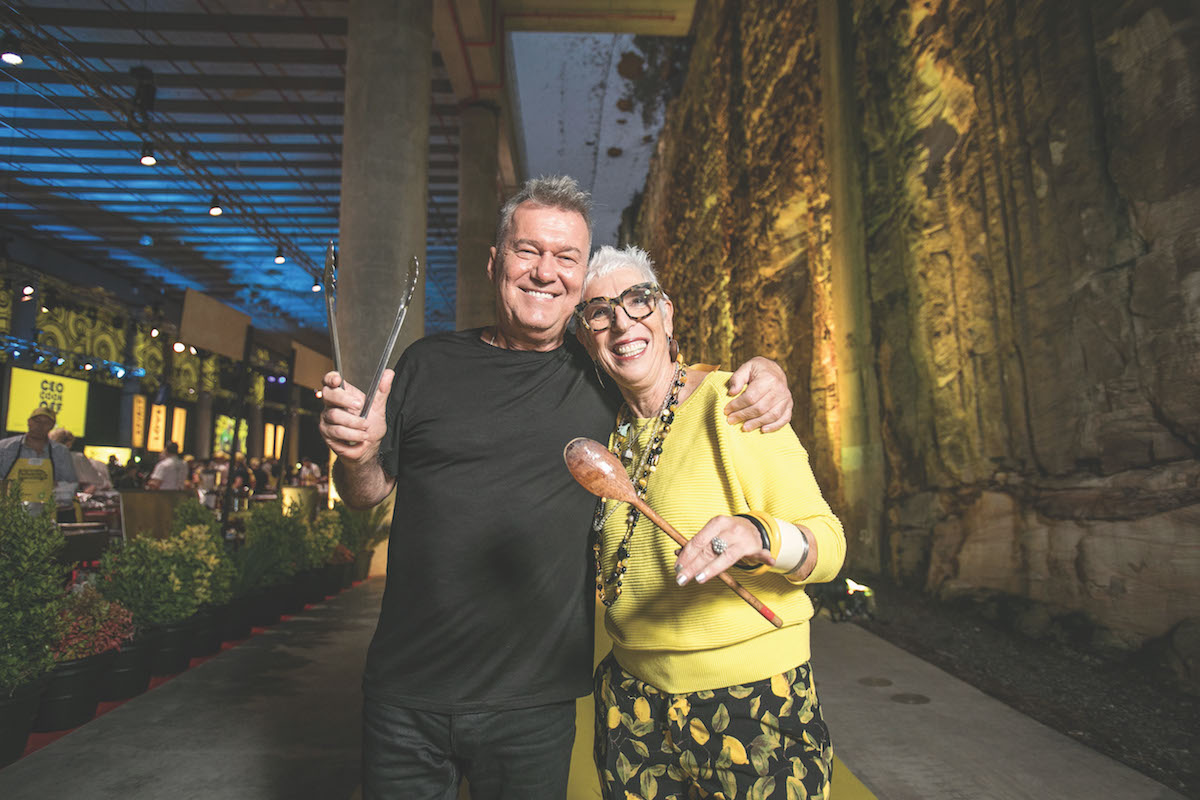
There were people who didn’t have food, and I became very aware of the inequality that discrimination causes. Though my parents never fought in the street and risked their lives, they cultivated values in us that were about honouring the dignity of all people.
“You chopped, you fried, you stirred and you cooked up a storm, but you know what? I can tell you, you can smell it in the air — that the most important ingredient in this food is love because you all put so much care into making it,” says Ronni. Her words are saccharine and humble; not the type of dialogue you’d typically encounter at corporate events.
Later she tells me she always emphasises the warmer concept, because it is an important part of embracing change. “Generosity, humility and love are all quite fluffy words for some business leaders, but they actually work and they need to be part of the lexicon — because until they are, we won’t change our society for the better,” she explains.
“Quite honestly, right now we are not looking after the planet enough; we are not looking after our people. So how can we live a prosperous life if we are leaving so much behind?” Her confidence and energy are exactly what a not-for-profit like OzHarvest needs in a leader.
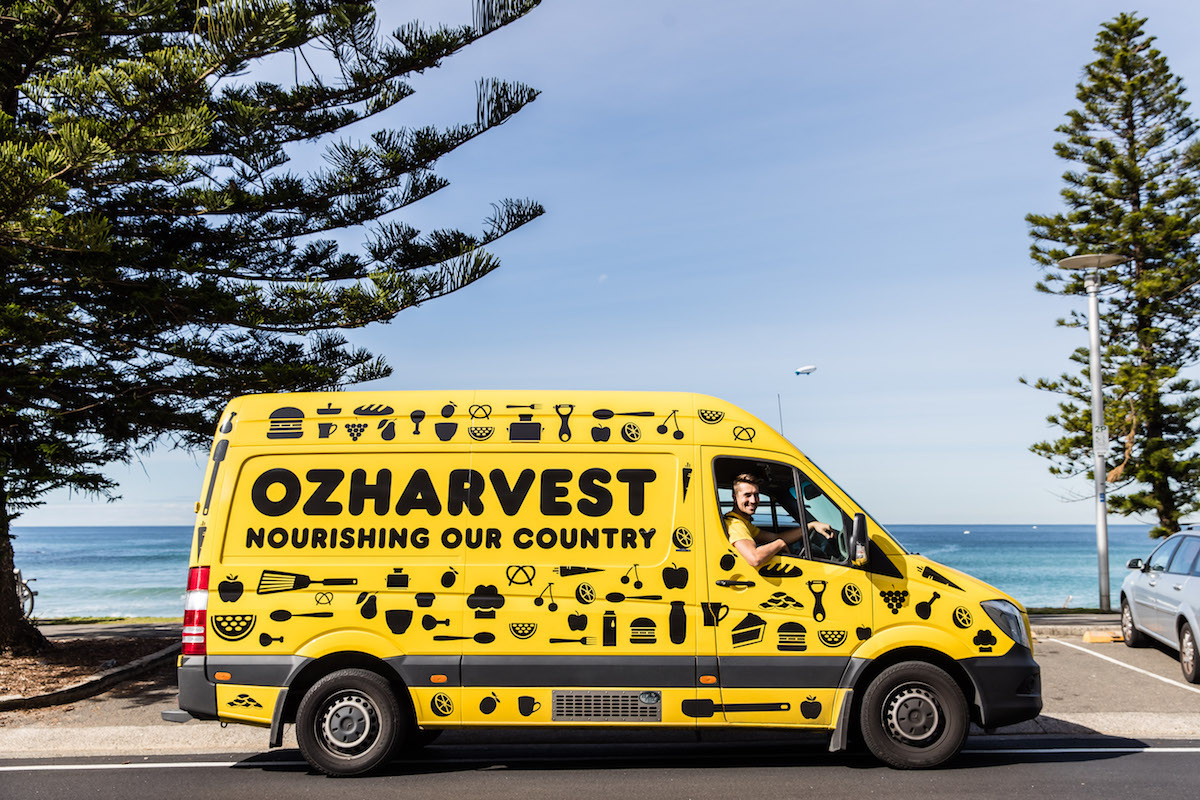
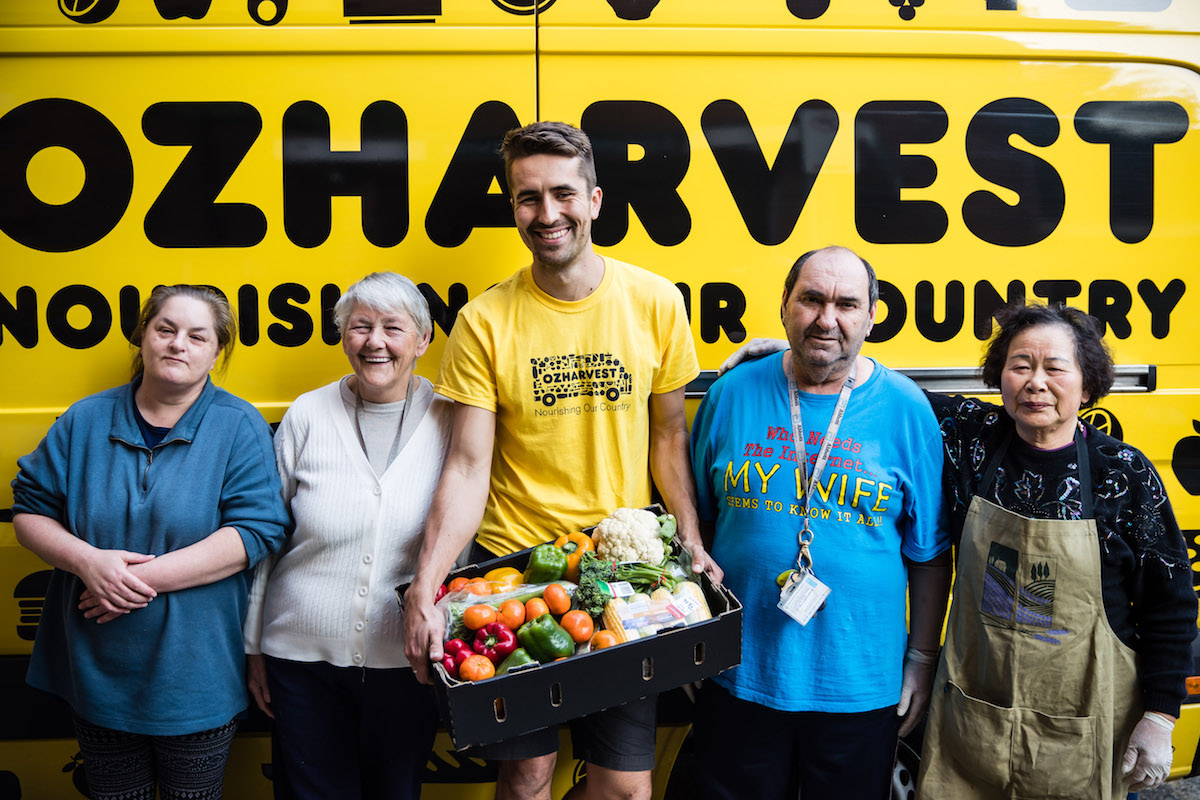
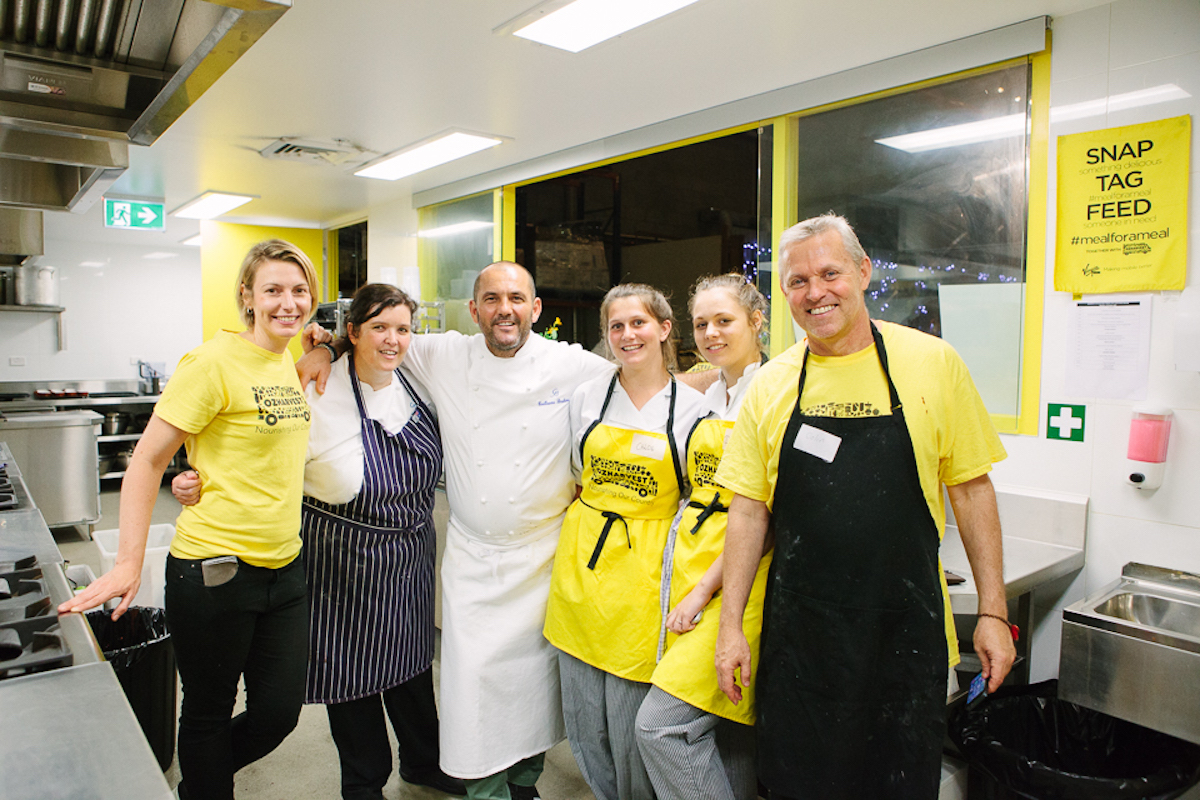
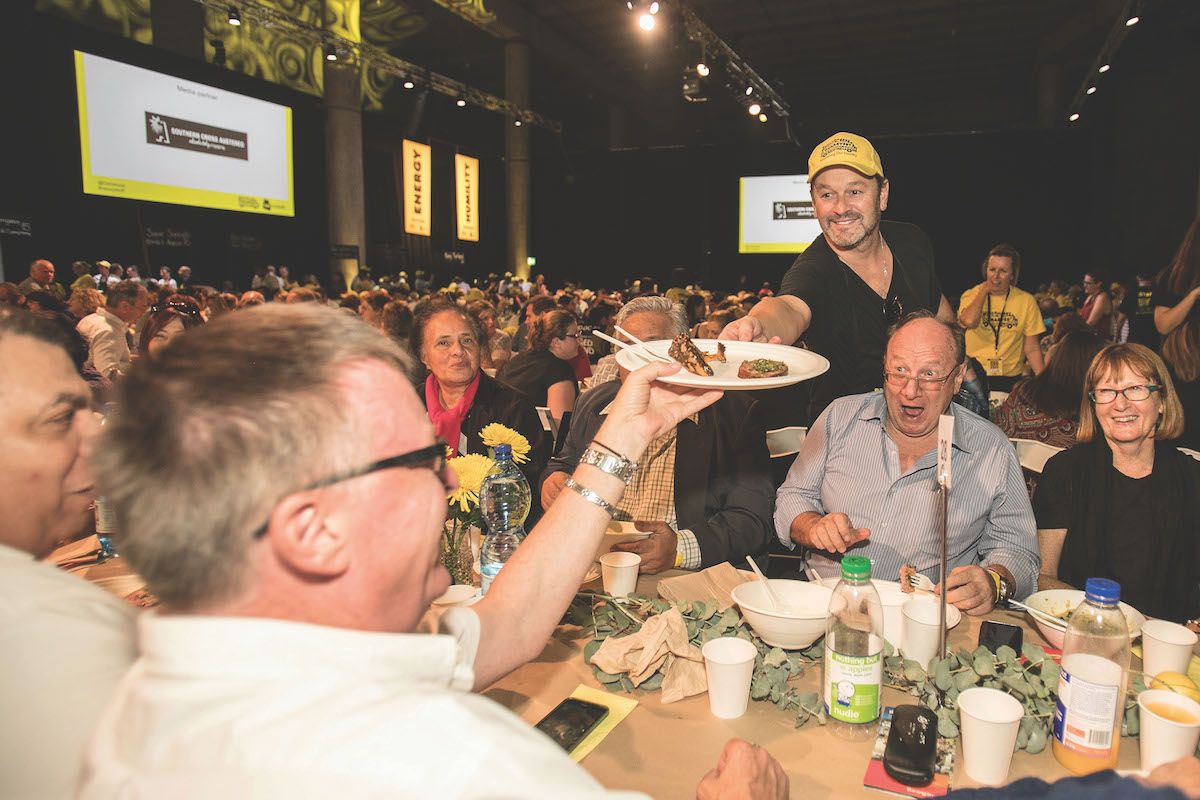
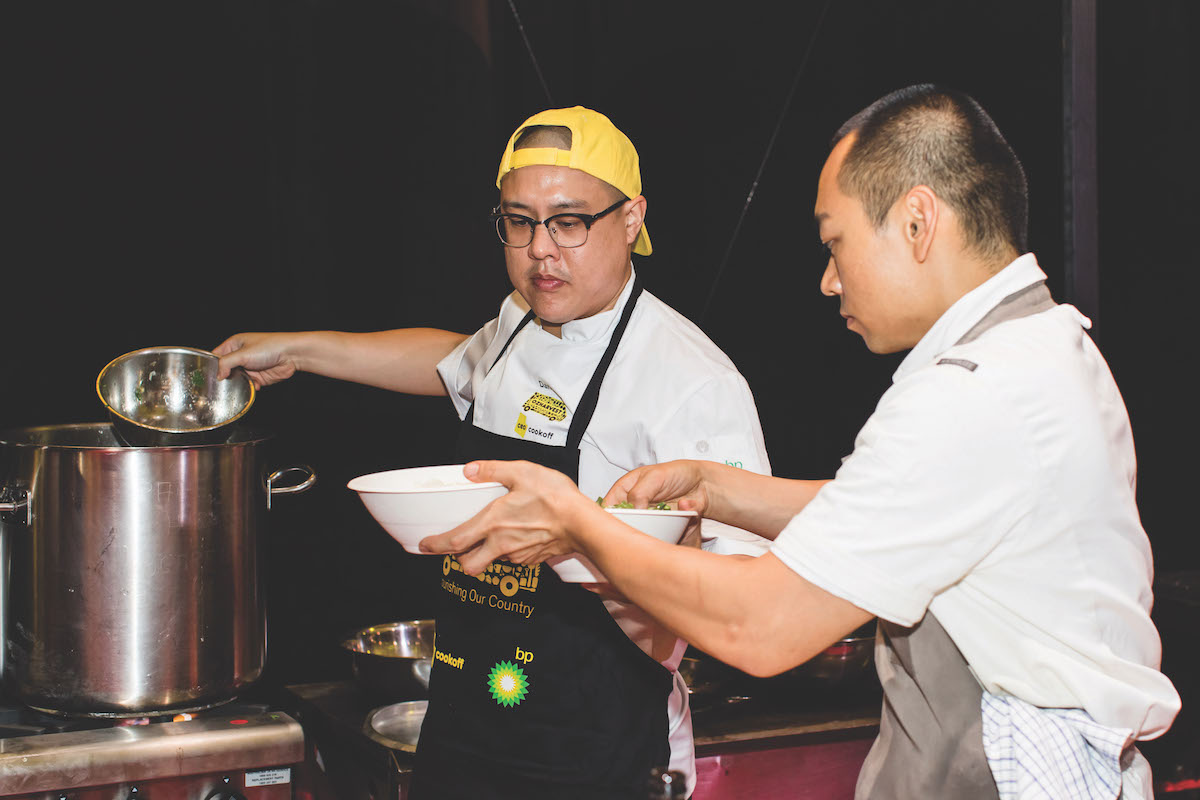
As CEO, she participates in each CookOff and often brings in the most cash. For every $1 donated, OzHarvest can feed two people. As Ronni notes too, there’s something so much better about a business leader who doesn’t just donate dollars, but who sees equal value in rolling up their sleeves and making a difference with their own two hands. “From a leadership point of view, the CEO CookOff is setting an example by action,” says Ronni. “Quite honestly, talk is cheap. Action isn’t.”
This is a value ingrained for Ronni, who grew up in South Africa’s apartheid regime, feeling deeply the sense of injustice permeating society. Starting with her mother — a marvellous cook — it was food that helped her to understand the world she was born into.
“Everybody always raved about my mother’s food and it would bring everyone together, but I was a very fussy eater. I didn’t really appreciate her cooking until later,” she says. “There were people who didn’t have food, and I became very aware of the inequality that discrimination causes. Though my parents never fought in the street and risked their lives, they cultivated values in us that were about honouring the dignity of all people.”

These values saw Ronni eventually join the Socialist-Zionist Habonim youth movement, and later move to Israel to live and work as part of a kibbutz — an economically and socially independent society founded on principles of communal ownership of property, social justice, and equality.
She lived with her first husband in the kibbutz for almost 20 years, having two sons, before moving to Haifa and starting a florist shop. Wanting to avoid her boys having to enlist for compulsory military duty as they reached adolescence, she sought a new home for her family, and Australia was the lucky country. The kibbutz made her long to create a new community, one that would encompass all areas of society.
“The vulnerable, the rich, the young, the old, all coming together as part of a sharing community based on principles of caring and giving,” she says. “Food encompasses these things; everybody can relate to it. I didn’t have to teach anybody that good food shouldn’t go to waste because at some point everybody has been told to ‘eat your food because there is someone starving somewhere’.”
It wasn’t until 2004 that Ronni founded OzHarvest, after years running her own events company. She saw the amount of waste that came from having a surplus of food at her events, and knowing that so many are starving on the street, she was stirred to make the change that the world needed. She even rallied and successfully changed legislation across four Australian states to ensure food donors are safe from liability so that they can donate more freely.
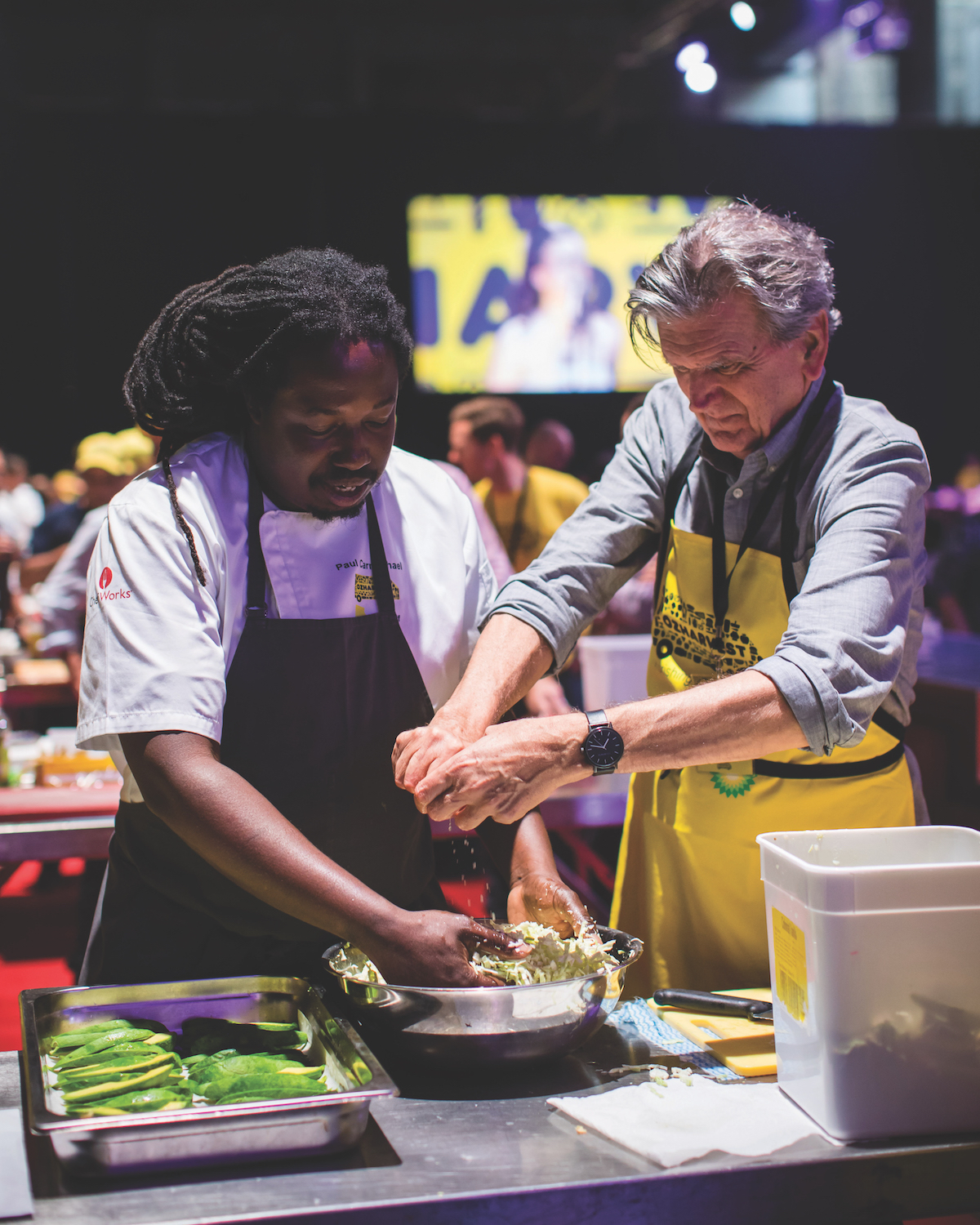
Since its first year of operation, OzHarvest has delivered more than 60 million meals around Australia after collecting surplus food from hotels, restaurants, events, farmers and more, and delivering it to various individuals and agencies around the country. “It felt like that was the next part of my journey, but I could not have imagined the joy, gratitude and passion with which I am imbued every single day,” says Ronni.
It comes as no surprise that one month later, the 2017 OzHarvest CEO CookOff went off without a hitch. More than 120 executives prepared meals under the guidance of 40 chefs from Australia’s leading restaurants, feeding more than 1,100 vulnerable Australians in attendance.
While that would be enough to make anyone sweat, the real work was in the fundraising. In the end, around $1.7 million was raised by participants, which will allow OzHarvest to deliver 3.4 million meals to those in need, as well as further reduce mass food wastage and train disadvantaged youth in hospitality and nutrition.
But the event is so much more than its outcome: for one night only it allows people to bond with their community and learn new things about themselves. For the execs, feeding the hungry doesn’t require board meetings or number-crunching.
For chefs, the kitchen is not the usual hectic whir of activity and pressure, but a calm space to pass on tips, tell stories, and laugh at spills. “It’s about a responsibility to the community, creating a ripple effect of generosity, and bonding people over food and cooking. That is the basis behind the CEO CookOff,” says Ronni.



